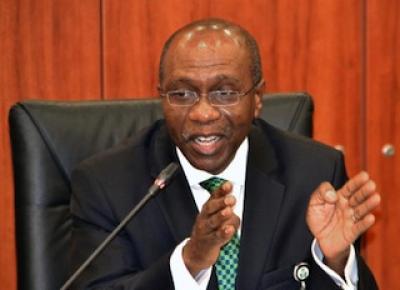News
MPC Increases Interest Rate as CBN Battles Inflation to Stimulate Growth
The Monetary Policy Committee (MPC) on Tuesday hiked the Monetary Policy Rate by 200 basis points from 12 per cent to 14 per cent to combat inflation and stimulate growth.
The Central Bank Governor, Godwin Emefiele who announced the decision of the committee after a two-day meeting in Abuja, said eight out of the 12-member committee attended the meeting.
Out of the eight, he said five members voted in favour of monetary tightening, while the remaining three members voted to hold the rate at 12 per cent.
He said the committee, however, left the Cash Reserve Ratio and the Liquidity Ratio unchanged at 22.5 per cent and 30 per cent respectively.
The MPR is the anchor rate at which the CBN, in performing its role as lender of last resort, lends to Deposit Money Banks to boost the level of liquidity in the banking system.
If the apex bank intends to increase the level of liquidity in the economy, it reduces the MPR but increases it when it intends to tighten money supply.
In taking the decision to increase MPR, Emefiele said the committee was faced with two policy choices whether to hold or reduce the rate to stimulate growth or increase the MPR in order to curb inflation.
He said considering that the primary mandate of the CBN was to maintain price stability, the committee had decided to focus on its mandate by checking inflationary pressures.
The governor explained that members of the committee were concerned about headline inflation which spiked significantly in June, approaching twice the size of the upper limit of the policy reference band.
The committee, according to the governor, noted that inflation had risen significantly, eroding real purchasing power of fixed income earners and dragging growth.
“The situation called for obvious tightening of the monetary policy stance. The technical recession confronting the economy and the prospects of negative growth to year-end needed to be factored into the policy parameters.
The arguments in favour of growth were anchored on the premise that the current inflationary episode was largely structural.
In particular, members noted the prominent role of cost factors arising from reform of the energy sector, leading to higher domestic fuel prices and electricity tariffs.
Also, prolonged foreign exchange shortages arising from falling oil prices leading to higher inputs costs, domestic fuel shortages, increased transportation costs and security challenges.
Consequently, the current episode of inflation, being largely non-monetary but largely structural, tightening at this point would only serve to worsen prospects for growth recovery,” he said.
In view of the weak economic growth, Emefiele said the MPC underscored the imperative of coordinated action which should be anchored by fiscal policy to initiate recovery at the earliest time.
“Members called on the Federal Government to fast-track the implementation of the 2016 budget to stimulate economic activity to bridge the output gap and create employment,” he said.
Emefiele said the committee was still concerned about non-payment of salaries in some states and called for urgent action in that direction to help stimulate aggregate demand.
He said the committee restated its commitment to take measures and deploy relevant instruments within its purview to complement fiscal policy with a view to restarting growth.
He enjoined banks to work with government by redirecting credit from low employment generating sectors to those capable of supporting growth, reducing unemployment and improving citizens’ standards of living.
Emefiele told newsmen that the CBN was happy with the workings of the new foreign exchange rate policy, which was to let the rate be determined by market forces.
“It has been excellent so far given that we had a 16 months period of no activity in the foreign exchange market. I would say that the results have been good with a few activities that we are not too happy about. We feel that this will improve in the course of time, because it is just one month since this started; there is a lot of room for improvement,” he said.
Emefiele explained why the Bureau de Change (BDC) segment would now begin to get foreign exchange through proceeds of international money transfers.
“We all know the size of diaspora funds that flow into the country and we thought that we should direct that foreign exchange that flows into the country through western union, money gram, etc to fund the BDCs. This we hope will bring down prices at the parallel market to the point where it bridges the gap between the inter bank market and the parallel market, thereby eliminating speculators,” he said.
Emefiele said that the apex bank had no intention of removing the foreign exchange restrictions of the 41 items it had earlier banned as the policy was already yielding positive results.
He said CBN will continue to support the agriculture sector to improve production of rice, tomatoes and other agriculture products with comparative advantage for the country.





















